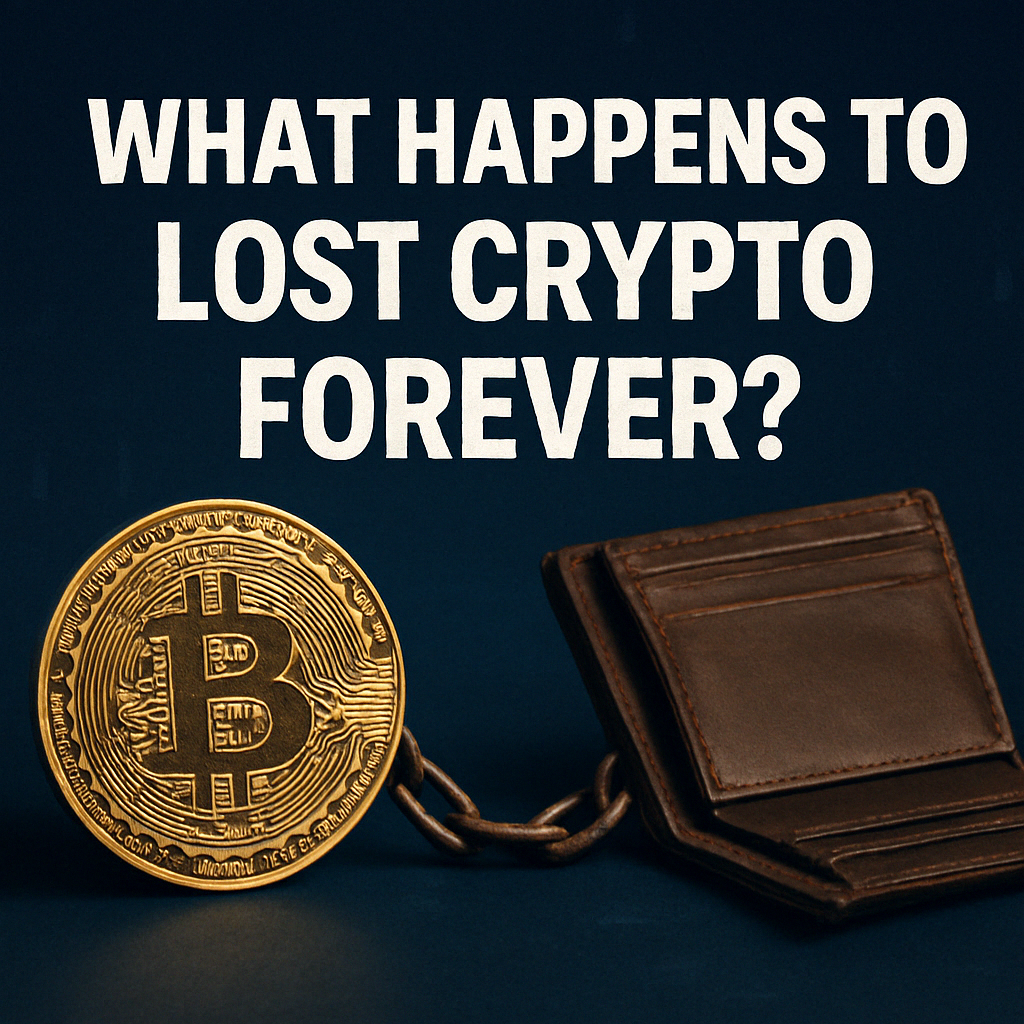What Happens to Lost Crypto Forever? Exploring Dead Coins, Forgotten Wallets, and Blockchain Archaeology

In the fast-paced world of digital assets, stories about missing millions, forgotten wallets, and ancient Bitcoin treasure maps aren't rare—they’re part of the lore. As terms like bitcoin recovery, BTC/INR, and the hunt for the best crypto to invest in 2024 gain mainstream popularity, there's a darker reality most investors overlook: lost crypto is a growing and irreversible phenomenon.
From coins sent to the wrong addresses to hard drives thrown in landfills, billions in digital currency have vanished, not due to hacks, but simple human error or neglect.
So… what really happens to lost crypto? Does it disappear? Can it be recovered? And what do blockchain sleuths — aka crypto archaeologists — do to unearth it?
Let’s dive deep into the ghost stories of the blockchain.
💸 How Does Crypto Get Lost?
Unlike traditional banks, crypto wallets don’t come with “Forgot Password?” links or customer support to help you recover your account.
Here are common reasons why crypto gets lost forever:
1. Forgotten Private Keys
Private keys are the only way to access your crypto wallet. Lose them, and you're locked out permanently.
2. Destroyed Devices
Many early adopters stored wallets on USB drives or old laptops. If these devices were thrown out or damaged, the assets became inaccessible.
3. Wrong Address Transfers
If you send Bitcoin or any other crypto to the wrong wallet address, the transaction is irreversible. There’s no undo button.
4. Dead Coins & Abandoned Projects
Many projects launched during the 2017 or 2021 bull runs are now defunct. Their coins still exist on the blockchain , but are functionally worthless.
🔍 Dead Coins: The Graveyard of Crypto
“Dead coins” refer to tokens that have been:
Abandoned by developers
Scammed or rug-pulled
De-listed from all exchanges
Left with no liquidity or utility
There are over 2,400+ dead coins listed on coin graveyard sites. Though they may still be visible on block explorers, their ecosystems are lifeless.
So what happens to those who still hold them?
Nothing. Holders are stuck with unusable digital relics — a reminder that not every project survives the hype.
📉 BTC / INR: Understanding the Value of Lost Bitcoin
Let’s put things in perspective:
It’s estimated that 3 to 4 million BTC (about 20% of the total supply) is permanently lost.
At the time of writing, BTC/INR hovers around ₹50–60 lakhs per coin.
That means India’s equivalent of ₹150,000 crores or more worth of Bitcoin is inaccessible forever.
This scarcity actually contributes to Bitcoin’s value — lost coins reduce supply, reinforcing its deflationary nature.
🧠 What Is Bitcoin Recovery?
Bitcoin recovery refers to the process of attempting to access lost or inaccessible Bitcoin. This is typically done in cases like:
Forgotten passwords
Corrupted wallet files
Incomplete seed phrases
Multi-signature wallet errors
But here’s the catch:
Unless you have at least partial access (a broken device, a partial seed, or an encrypted wallet file), true recovery is nearly impossible.
That’s where network BTC recovery services and white-hat hackers come into play —, attempting brute force decryption or using forensics tools to revive access.
⚠️ Caution: Many fake “recovery” services are scams. Only work with reputable experts and never share full wallet keys or personal details.
🧑🚀 Blockchain Archaeology: Digital Treasure Hunters
Blockchain archaeologists study transaction patterns, abandoned wallets, and even time capsules of early miners or developers. Their mission:
Trace lost funds
Monitor whale addresses for activity
Identify forgotten wallets with significant holdings
Analyze dormant coins that haven’t moved in over a decade
They use public data from explorers like Etherscan, Bitcoin’s ledger, and AI tools to speculate if coins are truly “lost” or just dormant.
🏆 Best Crypto to Invest in 2024 (To Avoid Getting Lost)
Learning from the past, investors today want reliable, secure, and future-proof cryptos. Some strong picks based on current trends include:
| Crypto | Why It's Solid |
|---|---|
| Bitcoin (BTC) | Limited supply, institutional adoption, battle-tested |
| Ethereum (ETH) | Leading smart contract platform |
| Solana (SOL) | Fast, scalable, low-fee blockchain |
| Chainlink (LINK) | Oracles that connect real-world data to smart contracts |
| Polygon (MATIC) | Ethereum Layer 2 solution with strong ecosystem |
✅ Tip: Diversify and use multi-layered wallet security to protect your assets from getting lost.
People Also Ask (SEO FAQs)
❓What happens to unclaimed cryptocurrency?
Unclaimed crypto remains on the blockchain forever unless the owner or heir accesses the wallet. Without the private key or seed phrase, the funds are effectively unrecoverable.
❓Where does lost crypto go?
Lost crypto doesn’t “go” anywhere — it stays in the wallet address. But without the key to access it, it’s like a locked treasure chest no one can open.
❓What happens to lost crypto wallets?
If a wallet is lost or deleted without backup, the assets inside are inaccessible. The coins remain on the blockchain but are effectively burned in terms of utility.
🧩 Is Lost Crypto Ever Recoverable?
Sometimes — but rarely.
Cases where recovery may be possible:
A backed-up seed phrase or partial clue resurfaces
Wallets found on old hard drives are decrypted
Users remember forgotten passwords
Experts recover corrupted files
Otherwise, lost crypto is a stark reminder of the responsibility that comes with decentralized finance: you are your own bank.
🔐 How to Avoid Losing Your Crypto
Use multi-sig wallets
Store your seed phrases offline
Keep encrypted backups in multiple locations
Regularly check your wallets and recovery tools
Consider using a trusted hardware wallet like Ledger or Trezor
⚠️ Disclaimer
This article is for educational purposes only and does not constitute financial, investment, or legal advice. Cryptocurrency is inherently risky. Always do your own research and consult experts before making financial decisions.
✅ Conclusion: Digital Gold or Digital Ghosts?
The crypto revolution empowered people to own money without intermediaries — but that power comes with risk. From misplaced wallets to defunct coins, trillions in value have vanished into digital oblivion.